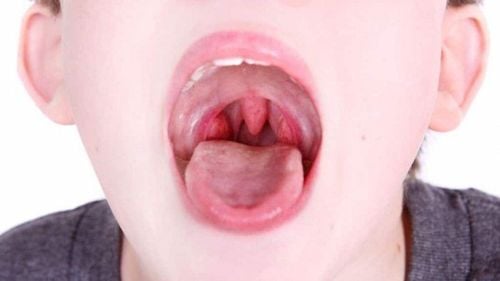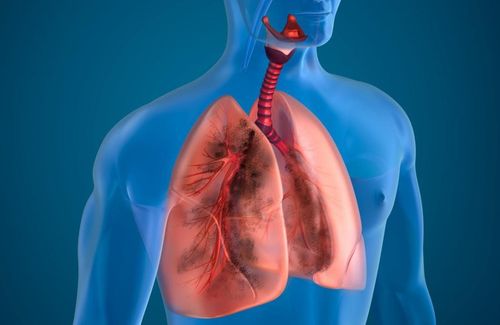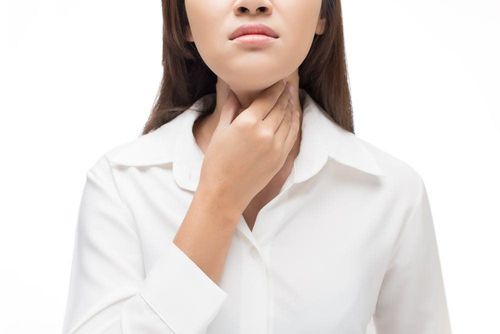This is an automatically translated article.
Acute laryngitis is inflammation of the lining of the larynx. This is a fairly common disease in our country and is mainly caused by a virus entering the body. Acute laryngitis in children requires careful monitoring because complications can be life-threatening.
1. Causes of vocal cord inflammation
The most common causes of laryngitis are:
Change in weather, the inflammation is often severe in the cold season. Lesions can be from the nose down to the larynx. Men have more vocal cord inflammation than women because of arising conditions such as: Smoking, drinking alcohol, working in dusty places, cold wind. Laryngitis is caused by:
Common viruses are: Influenzae (flu), APC... Bacteria: S.pneumoniae (pneumococcal), Hemophilus influenzae Diphtheria bacillus.

Hút thuốc lá có thể làm tăng nguy cơ mắc bệnh viêm dây thanh quản
2. Symptoms and complications of laryngitis
Acute laryngitis in adults usually does not cause dangerous conditions with good recovery, but in children must be closely monitored because it easily causes laryngeal dyspnea, which can be life-threatening.
Acute laryngitis can progress to bronchitis, pneumonia but rarely.
2.1 Laryngitis in children
Inflammation of the larynx and subglottic larynx is a disease that occurs mainly in children 1-3 years old. The disease is usually detected at night in a young child with common nasopharyngitis, which progresses slowly and suddenly develops laryngeal dyspnea. Constrictive laryngitis or pseudo-diphtheria laryngitis: Localized inflammation and edema in the lower pharynx, laryngospasm causing episodes of dyspnea often occurring in the middle of the night and in the morning, shortness of breath and stridor, raucous. Inflammation of the vocal cords: The vocal cords are swollen, the patient has painful swallowing, difficulty in breathing, increased secretions, a lot of saliva, the neck is tilted forward, and shortness of breath increases when lying on the back, often due to Hemophilus influenza. Diphtheria laryngitis: Caused by Loeffler bacteria entering the larynx, causing edema and ulceration with pseudomembranous membranes. The white, tough, sticky, pseudomembranous membrane causes airway obstruction causing worsening laryngeal dyspnea, hoarseness, accompanied by endotoxin shock, which makes the prognosis very severe and easily leads to death.

Trẻ bị viêm họng dễ mắc viêm dây thanh quản
2.2 Laryngitis in adults
Influenza laryngitis: Symptoms of high temperature, weak pulse, rapid shallow breathing, low blood pressure, albumin in urine, very poor prognosis, often death from bronchi, cardiovascular collapse and causes different diseases such as:
Exudative: Symptoms are similar to common secretory vocal corditis, but the patient has fever, prolonged fatigue. Laryngeal examination sometimes shows submucosal hemorrhage. Edema form: Edema is usually localized to the epiglottis and posterior surface of the funnel cartilage. Patients swallow pain and sometimes have difficulty breathing, voice changes little. Ulcers: Laryngoscopy will show shallow ulcers, red margins, edematous funnel and epiglottis.

Sốt là triệu chứng phổ biến của bệnh viêm dây thanh quản
Inflammatory form: Severe systemic symptoms, high fever, rapid pulse, emaciated face. Visible physical symptoms: Difficulty swallowing, sore throat, throbbing in the ears, hoarse voice or gone completely, difficulty breathing in the larynx. Necrotic form: The cartilage membrane is inflamed and necrotic, the loose connective tissues in the neck are inflamed, stiff, or inflamed with pus, the larynx is enlarged and covered with a false membrane. The patient has difficulty speaking, swallowing pain, and breathing difficulty.
3. Treatment of vocal cord inflammation
Based on the cause and extent of the disease to give the most appropriate treatment plan:
Use antibiotics, anti-inflammatory: To relieve the uncomfortable symptoms of laryngitis. Medicines are only effective against certain pathogens and can cause drug resistance, so patients need to use them exactly as prescribed by the doctor. Treatment with Oriental Medicine: Using herbs such as muskmelon, dandelion, honeysuckle, black ginseng, sand root, honey... to help clear heat, quickly relieve symptoms of sore throat, itchiness, and cough. many, hoarse. Limit the case of drug resistance, less recurrence due to strengthening the body's resistance and immunity. Surgical treatment: In cases where the vocal cords have tumors, minor surgery will be performed to remove them.

Thuốc kháng sinh có hiệu quả trong điều trị viêm thanh quản cấp
To avoid dangerous complications of acute laryngitis, when suffering from laryngitis, patients need to go to medical facilities for effective and safe treatment.
Any questions that need to be answered by a specialist doctor as well as customers wishing to be examined and treated at Vinmec International General Hospital, you can contact Vinmec Health System nationwide or register online HERE.
MORE
Is acute laryngitis dangerous? Causes and treatment of chronic laryngitis Care and treatment of acute laryngitis in children













